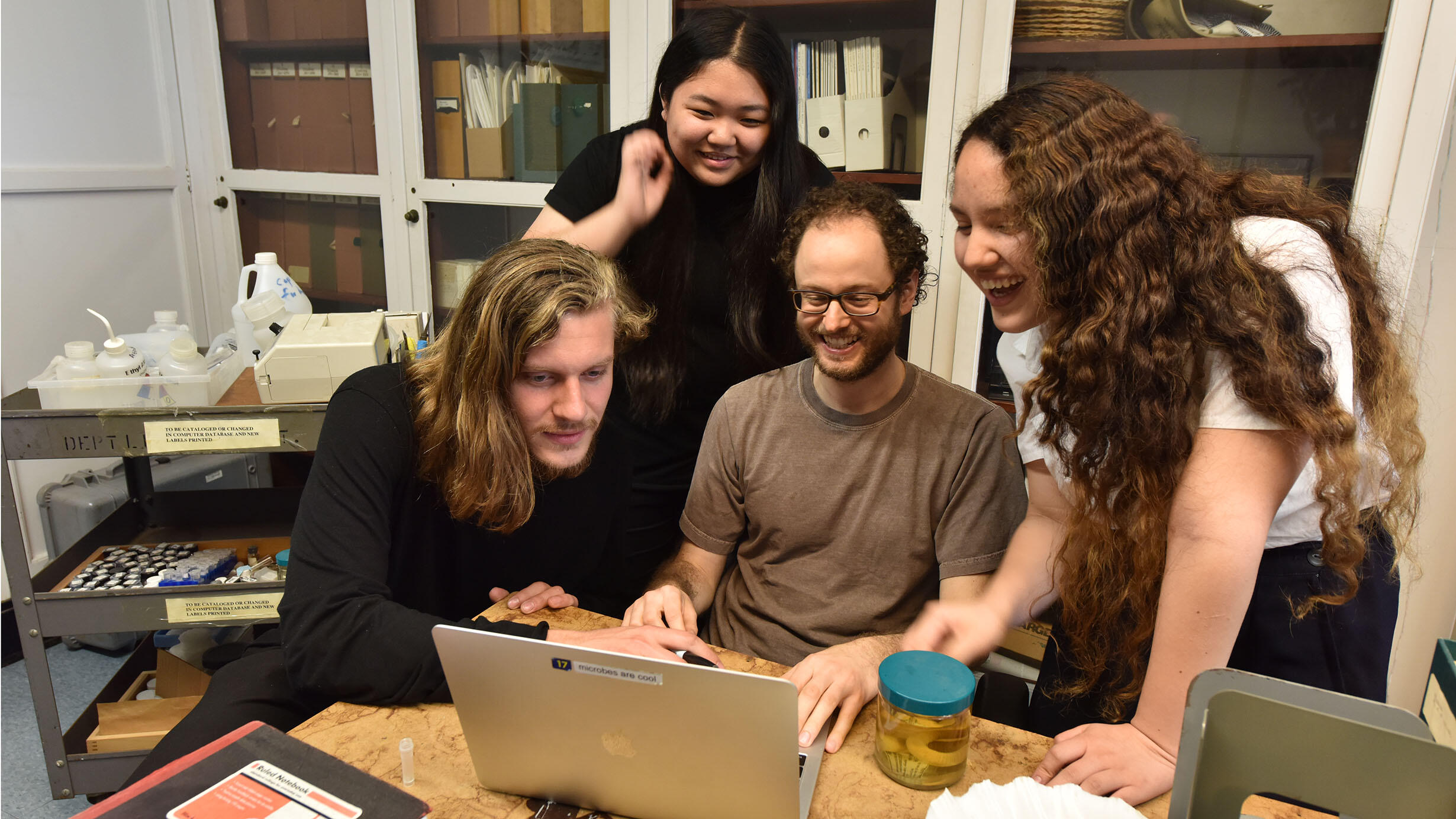Science Research Mentoring Program
Part of Teens
Support for the Science Research Mentoring Program at the American Museum of Natural History is provided by Christopher C. Davis; The Shelby Cullom Davis Charitable Fund; and The Pinkerton Foundation.
The American Museum of Natural History gratefully acknowledges Morgan Stanley for its sponsorship of youth initiatives.
The Museum’s Education Collection is generously supported by the Anna-Maria and Stephen Kellen Foundation and Elysabeth Kleinhans.
Support for the NYC Science Research Mentoring Consortium is generously provided by The Pinkerton Foundation.
Planning for an expansion of the NYC Science Research Mentoring Consortium is supported by the Alfred P. Sloan Foundation under Grant No. G-2023-22352.
SRMPmachine is funded by National Science Foundation award #2049022.
 Denis Finnin/© AMNH
Denis Finnin/© AMNH